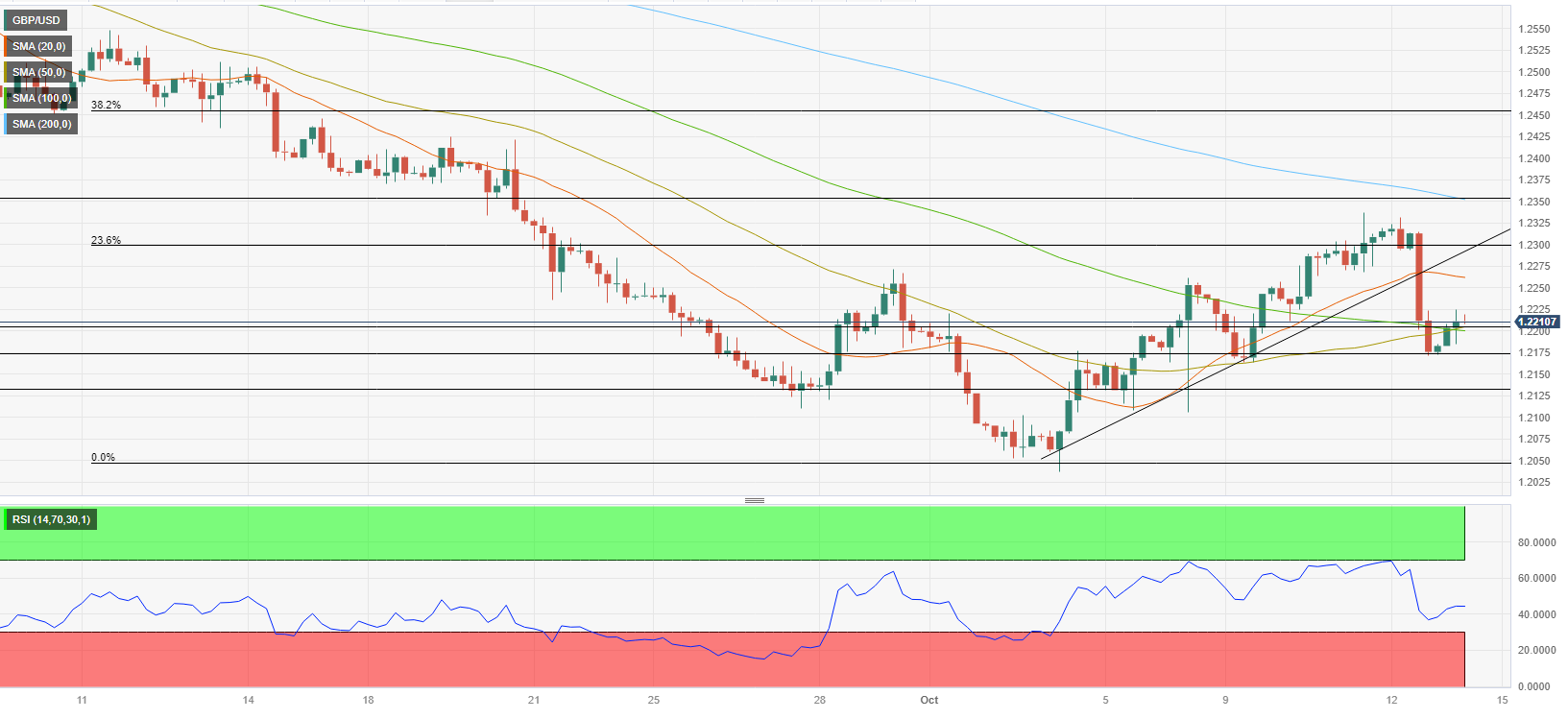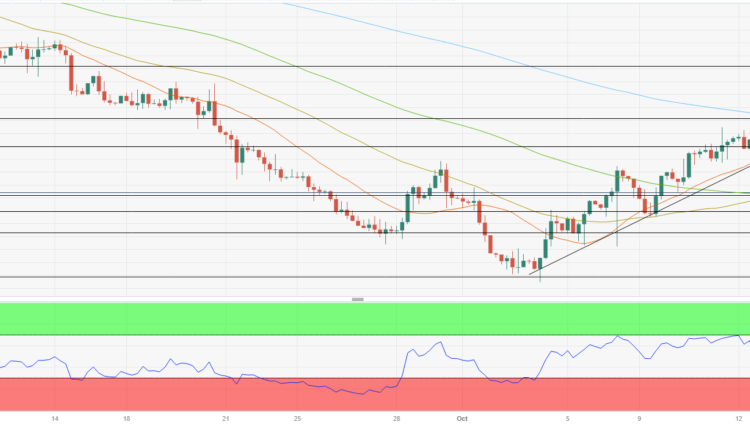GBP/USD stabilizes above 1.2200 but looks vulnerable
GBP/USD hovers around 1.2200 post recent losses on upbeat US data
GBP/USD retraces the recent losses that were registered on Thursday, trading higher around the 1.2200 psychological level. However, the pair faced challenges due to the optimistic economic data from the United States (US).
The Consumer Price Index (CPI) in the US, as revealed by the US Bureau of Labor Statistics (BLS), exceeded expectations in September, with annual figures expanding consistently at a rate of 3.7%, slightly surpassing the estimated 3.6%. Read more…
GBP/USD Forecast: Pound Sterling stabilizes above 1.2200 but looks vulnerable
GBP/USD lost more than 100 pips on Thursday and erased all the gains it recorded in the first half of the week. Early Friday, the pair staged a rebound and stabilized above 1.2200. US Treasury bond yields surged higher on Thursday after the September inflation report and helped the US Dollar (USD) outperform its rivals.
Although the US Bureau of Labor Statistics announced that the annual Core Consumer Price Index (CPI) inflation, which excludes volatile food and energy prices, edged lower to 4.1% from 4.3% as forecast in September, underlying details of the report revived expectations for one more Federal Reserve rate increase later in the year. Read more…

Pound Sterling weakens on persistent slowdown fears
The Pound Sterling (GBP) dropped from a two-week high as the United Kingdom’s economic outlook weakened after factory output contracted for the second consecutive month. The GBP/USD pair surrendered the majority of recent gains as data from the US showed inflation remains persistent, denting the risk appetite of market participants. UK’s manufacturing and overall Industrial Production dropped in August as firms cut spending on labor and inventory due to a poor demand outlook.
More sell-off in the Pound Sterling is anticipated as Bank of England (BoE) policymaker Swati Dhingra supported a rate cut if economic growth remains below estimates. The UK is expected to remain on the backfoot compared with other G7 economies as it is struggling with higher interest rates, filthy trade relations with the European Union, and rising gasoline prices. Read more…


Comments are closed.